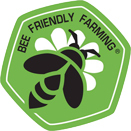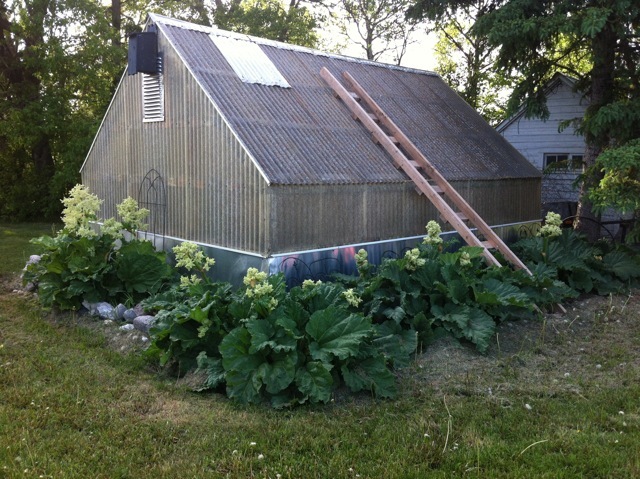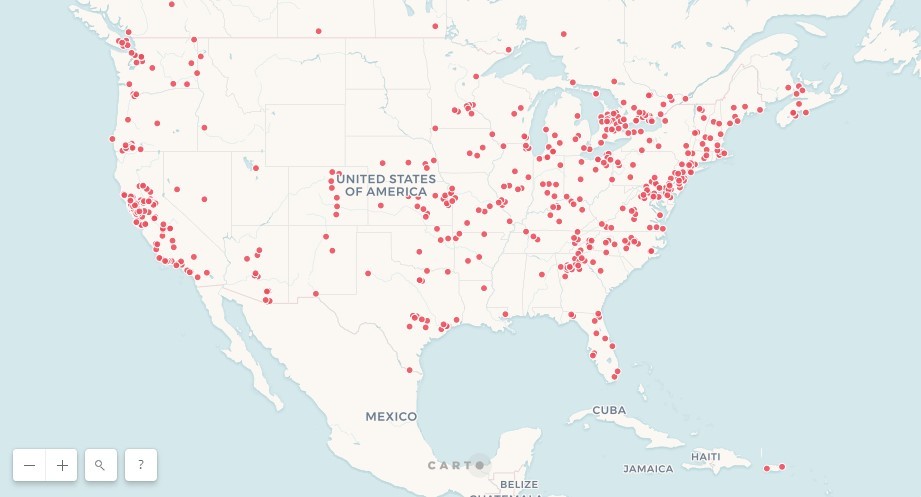Farmers Can Be Friends Too

By Tess Wynn, Pollinator Partnership
Bee Friendly Farming (BFF) is a program that provides guidelines for farmers and growers to promote pollinator health on their lands. Pollinator Partnership (P2) administers and coordinates BFF, which is an online certification created by experts including Kathy Kellison, Sam Droege, Marla Spivak, and others. By providing guidelines on important concepts like planting pollinator food resources that last the entire foraging season, leaving areas of land untilled and “wild”, and incorporating an integrated pest management strategy, BFF helps ensure the future of bees and sustainable agriculture.
Photo by Gail Vandersteen

Bees and other pollinators may be small, but they are critically important to the sustainability of agriculture and ecosystems. In fact, they pollinate 2/3rd of all plants on earth, and without them many fruits, nuts, vegetables, and other foods would not exist. Many pollinator populations are in decline, but farmers can play a key role in their health and survival. Most agricultural landscapes do not provide sufficient or balanced habitat, because intensive cultivation has eliminated native plants that pollinators need. However, bee-friendly farming can help promote healthy populations of honey bees, native pollinators, and other beneficial insects.
In addition, BFF benefits farmers. Properly pollinated crops exhibit increased yields and improved produce quality, and purchases from a Bee Friendly Farmer directly support part of the solution to save our pollinators. Through BFF, farms that responsibly steward their environment using sustainable agricultural practices are recognized and given the tools to showcase their work, influencing others to follow by example. They are pinned on the BFF map upon registration, and given use of the BFF logo to indicate that the products or services it provides are produced on lands that help protect pollinators. The BFF program also offers signs, stickers, bookmarks, and more to help raise public awareness and promote bee-friendly efforts. Commercial beekeepers also benefit from bee-friendly plantings on fallow lands, which allow them to avoid trucking bees long distances in search of safe pasture.

BFF originated as a program of Partners For Sustainable Pollination (PFSP), an initiative out of Sonoma County, California. In the face of colony collapse disorder and the effects of pesticide use, PFSP acknowledged that simply planting more flowers was not enough to solve pollinator population decline. Pollinator Partnership entered into a Memorandum of Understanding with PFSP in April 2013 and acquired the BFF program. With P2’s North American scope, and its large network, BFF was re-launched and expanded throughout the continent and beyond. P2 maintained the 233 farmers already enrolled in BFF and circulated a new campaign to reinvigorate interest in the program. To date there are over 700 Bee Friendly Farmers registered in the program.
Photo by Antony John, Soiled Reputation
From the over 700 certified Bee Friendly Farmers, there are reports of increases in natural enemies of pests like ladybugs and praying mantises. Meadowview Farm & Natural Habitat Gardens in Crestwood, Kentucky has noticed a significant increase in predatory insects. Farmers also report that customers are drawn to their products because they are produced on a Bee Friendly Farm. Soiled Reputation (Ontario), a farm that provides produce to restaurants, says it is of great importance to its chef clients. The BFF label is valuable and respected by honey buying customers of Meadowsong Apiaries in Seven Valleys, PA.
To become a certified Bee Friendly Farmer, these criteria must be met:
- Offer forage providing good nutrition for bees on 3-6% of land.
- Plant continuous bloom of different flowering plants throughout the growing season, especially in early spring and late autumn in temperate regions.
- Offer clean water for bees.
- Provide a variety of habitat for nesting and mating, through features such as hedgerows, natural brush, or buffer strips.
- Practice Integrated Pest Management (IPM); reduce or eliminate the use of chemicals.
- Pay the annual $35 certification fee.
Check out www.pollinator.org/bff to view the current bee-friendly farms enrolled, to register your own operation, and to donate to the program today!